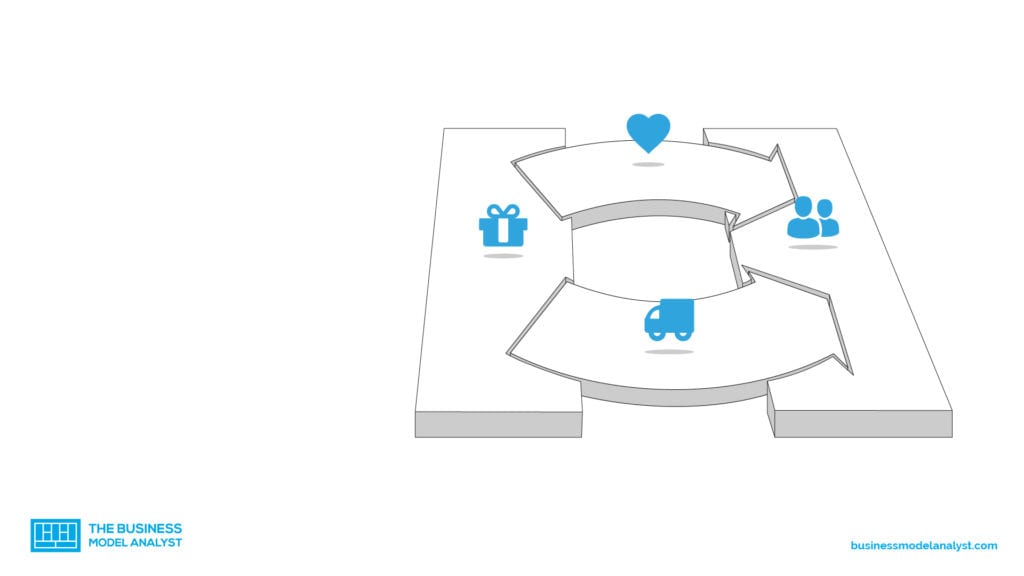Customer Relationship Business Canvas

In the realm of business strategy, few tools are as versatile and insightful as the Business Canvas. Developed by Alexander Osterwalder and Yves Pigneur, this strategic management template allows companies to visualize, design, and innovate their business models. When it comes to customer relationships, the Business Canvas offers a unique lens through which to examine and enhance how businesses interact with their clients. Let’s delve into how the Customer Relationship aspect of the Business Canvas can be a game-changer for businesses aiming to foster deeper, more meaningful connections with their customers.
Introduction to the Business Canvas
Before diving into the specifics of customer relationships, it’s essential to understand the broader context of the Business Canvas. This tool is designed as a single-page diagram that consists of nine building blocks, each representing a different aspect of a business model. These blocks include:
- Customer Segments: Identifying the specific groups your business serves.
- Value Proposition: Describing the unique value your business offers to its customers.
- Channels: Outlining how your business reaches its customers.
- Customer Relationships: Defining the types of relationships your business establishes with its customers.
- Revenue Streams: Detailing how your business generates revenue.
- Key Resources: Listing the essential assets needed to operate your business.
- Key Activities: Describing the main operations and actions your business must take.
- Key Partnerships: Identifying the crucial partnerships and suppliers your business relies on.
- Cost Structure: Outlining the main cost elements your business incurs.
Focusing on Customer Relationships
Among these Building Blocks, Customer Relationships stands out as a critical component for any business looking to establish, maintain, and grow its customer base. Effective customer relationships are the backbone of long-term success, fostering loyalty, encouraging repeat business, and generating positive word-of-mouth. The Customer Relationship aspect of the Business Canvas prompts businesses to consider what kinds of relationships they want to establish with their customer segments.
Types of Customer Relationships
There are several types of customer relationships that businesses can foster, each with its unique characteristics and benefits:
- Personal Assistance: Providing tailored, human interaction, often through sales forces, account managers, or customer service representatives.
- Dedicated Personal Assistance: Offering one-on-one service to each customer, often seen in high-value or complex industries.
- Self-Service: Enabling customers to serve themselves through automated services or tools, reducing costs and increasing efficiency.
- Automated Services: Using technology to provide efficient and standardized services, such as chatbots or FAQs.
- Communities: Creating forums or platforms where customers can interact with each other, share experiences, and find support.
- Co-creation: Inviting customers to contribute to the development of products or services, ensuring the offerings meet their needs and preferences.
Creating Effective Customer Relationships
To create effective customer relationships, businesses must tune into their customers’ needs, preferences, and behaviors. This involves understanding the customer journey from start to finish, identifying pain points, and tailoring services to address these challenges. Technology, such as CRM (Customer Relationship Management) systems, can play a vital role in facilitating these interactions by providing insights into customer behavior and enabling personalized communication.
Moreover, in today’s digital age, social media platforms offer unprecedented opportunities for businesses to engage with their customers directly. Through these channels, companies can listen to feedback, respond to concerns, and build a community around their brand, fostering a sense of belonging and loyalty.
The Future of Customer Relationships
Looking ahead, the future of customer relationships will be increasingly shaped by technology, sustainability, and personalization. Artificial intelligence (AI) and machine learning (ML) will continue to enhance customer service, offering more efficient and personalized experiences. At the same time, there will be a growing emphasis on ethical and sustainable business practices, with customers expecting companies to demonstrate their commitment to social and environmental responsibility.
Conclusion
In conclusion, the Customer Relationship aspect of the Business Canvas is a powerful tool for businesses to re-evaluate and refine their approach to customer interaction. By understanding the types of relationships to cultivate, leveraging the right technologies, and prioritizing customer needs, businesses can build lasting connections with their clientele. As the business landscape continues to evolve, the ability to adapt, innovate, and truly listen to customers will be the hallmark of companies that succeed in fostering deep, meaningful customer relationships.
Frequently Asked Questions
What is the significance of customer relationships in a business model?
+Customer relationships are crucial as they help in fostering loyalty, encouraging repeat business, and generating positive word-of-mouth, which are key to long-term business success.
How does technology impact customer relationships?
+Technology, especially digital platforms and tools, can significantly enhance customer relationships by providing efficient, personalized, and automated services. It also enables businesses to gather insights into customer behavior and preferences.
What role does sustainability play in customer relationships?
+Sustainability is increasingly important as customers expect businesses to demonstrate their commitment to social and environmental responsibility. Incorporating sustainable practices can enhance customer loyalty and attract like-minded customers.
